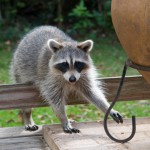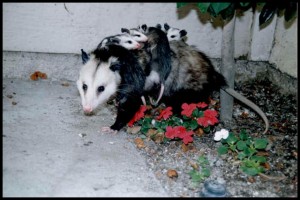READY TO GET STARTED?
REQUEST A FREE ESTIMATE
Fill out the form below or call (888) 466-7849 for a free, no-obligation estimate.
By: Katherine King
“Busy as a bee” is an old saying. The phrase implies that you are constantly moving, being industrious, getting your work done, and focused in order to achieve a goal. Now let’s think about the insect in the phrase, the bee. Bees are very industrious little animals. They are constantly in search of places to get nectar, their food, which they can bring back to the colony in order to feed everyone else. The bees that remain inside the hive are busy working as well. They are expanding the size of the hive, caring for young, and producing the honey which is their main food source.
All of these things are wonderful to hear about, but not many people are comfortable when they see bees. They can be rather large, bright colored, loud, and have a reputation to sting. These factors may make you wary of bees and may make you think that you need to make a run for it. In actuality, bees would much rather leave you alone. They only sting as an absolute last resort. They can only sting one time in their life and then die shortly after they sting you.
There are some redeeming qualities and benefits of bees…their honey. Honey does not have an expiration date. If your honey hardens, you can gently heat it and it will soften back up. If you ever get a burn, you can put honey on it to protect the burn and help it heal. Honey has other medicinal properties that aren’t confirmed, but from a holistic stand-point they are great. I have personally had good results using honey to try and fight some major allergies. If that is why you are eating honey, be sure you buy local honey from your area so that you are exposed to the right pollens.
Although bees have positive benefits, we want to make sure you know that they can also be a threat if caution is not exercised. If you have bees in or around your property and would like them removed, call our Wildlife division at Northwest Exterminating for our bee removal service.
Watching from your kitchen as squirrels and other wildlife run around the back yard can be amusing, but finding these animals frantically scurrying in your attic or garage is anything but funny. Northwest Exterminating wants to remind homeowners to be aware that all kinds of nuisance critters are looking to stay warm this season and may try to gain access to the home.
Finding any wildlife in your home can be an unpleasant experience. It is important to remember that these animals are wild and shouldn’t be handled without the help of a professional animal removal company. In fact, they can bite, claw or scratch if they feel threatened and you don’t know if they are harboring a disease.
Homeowners should do a careful check along the outside of the home to close up any gaps or entry points. The National Pest Management Association (NPMA) recommends the following tips to specifically keep nuisance wildlife in the great outdoors where they belong:
For more information on wildlife animal removal and how to protect your home, visit www.callnorthwest.com.
Source: PPMA
In our last blog we discussed the potential health threats and property damage that animals can cause when they enter your home. We’re not talking about dogs and cats here, we’re talking about the animals that belong in the wild: bats, raccoons, squirrels , mice, opossums, and other wildlife. With the cold temperatures we are starting to experience, it’s a prime time for wild animals to seek warmth and shelter in homes.
Here are some helpful tips on how to keep wildlife out of your home:
If you hear wildlife in your home, it is best to call a professional animal removal company. Some animals can get aggressive when they feel they are being threatened. Northwest’s wildlife control specialist can help to remove the animal, seal off entry points, and help you to ensure that other wildlife do not return.
 Changing temperatures means changes in the types of pest you may see around your area. One of the reasons you may soon see certain pests less is because of hibernation. Hibernation is a period of inactivity in animals during which they experience lower body temperatures, slower breathing and lower metabolic rates. Most people think that hibernation is just an animal sleeping but it’s more about the animal conserving energy during winter when food supplies are limited.
Changing temperatures means changes in the types of pest you may see around your area. One of the reasons you may soon see certain pests less is because of hibernation. Hibernation is a period of inactivity in animals during which they experience lower body temperatures, slower breathing and lower metabolic rates. Most people think that hibernation is just an animal sleeping but it’s more about the animal conserving energy during winter when food supplies are limited.
To prep for hibernation, animals spend the autumn foraging for food, which means they might be around or even inside your home searching for a treat! Animals that spend the autumn prepping for hibernation include bats, chipmunks, squirrels, raccoons, skunks, and bears. In addition, cold-blooded critters hibernate too because the cold weather causes their body temperatures to drop. These animals include bees, earthworms, frogs, toads, lizards, turtles, snails and snakes. You won’t have to worry worry about these animals foraging for food as they tend to hide away around the time autumn hits.
Make sure not to tempt these animals on to your property by maintaining a clean home and making sure the trash is not easily accessible. Northwest Exterminating can help guard your home by providing services such as Complete CrawlSpace and TAP Attic Insulation. If you are interested in this service or more, please visit us at www.callnorthwest.com!
Sources:
 Some people think that when the temperatures drop, they will have less pest issues. For some critters this may be true, as they use the autumn to store up for a cold winter, during which they hide away. However, some of the larger animals such as squirrels, raccoons, possums, etc., might want to use your home for a warm space to hide away from the weather. Northwest Exterminating’s Wildlife Team knows just what to do in order to keep your home a pest-free zone!
Some people think that when the temperatures drop, they will have less pest issues. For some critters this may be true, as they use the autumn to store up for a cold winter, during which they hide away. However, some of the larger animals such as squirrels, raccoons, possums, etc., might want to use your home for a warm space to hide away from the weather. Northwest Exterminating’s Wildlife Team knows just what to do in order to keep your home a pest-free zone!
Depending on what type of animals may be in your area, they can leave you susceptible to various issues. For instance, some squirrels like to make nests in attics, using your insulation as material! The costs of repair plus the hazards of a potential electrical fire due to damaged wires makes it really necessary to block this area off from potential unwanted guests. Aside from squirrels, other creatures have the potential to do damage in the form of bites or fleas that might affect your children or pets.
To reduce these risks against you, Northwest’s Wildlife Team specializes in wildlife exclusion. One of form of wildlife exclusion involves sealing up any potential openings to secure your home. The Wildlife Team will inspect your home, evaluating potential problem areas and implementing measures to eliminate these issues. However, if by chance your home has already gotten unsolicited attention from these pests, the Wildlife Team knows just what to do to take care of your home and prevent the issue from happening in the future. If you need a Wildlife representative, please contact us at 888-466-7849 or visit our website www.callnorthwest.com
Source: http://ezinearticles.com/?The-Importance-of-Wildlife-Exclusion&id=7352650
Melissa Brown
[email protected]